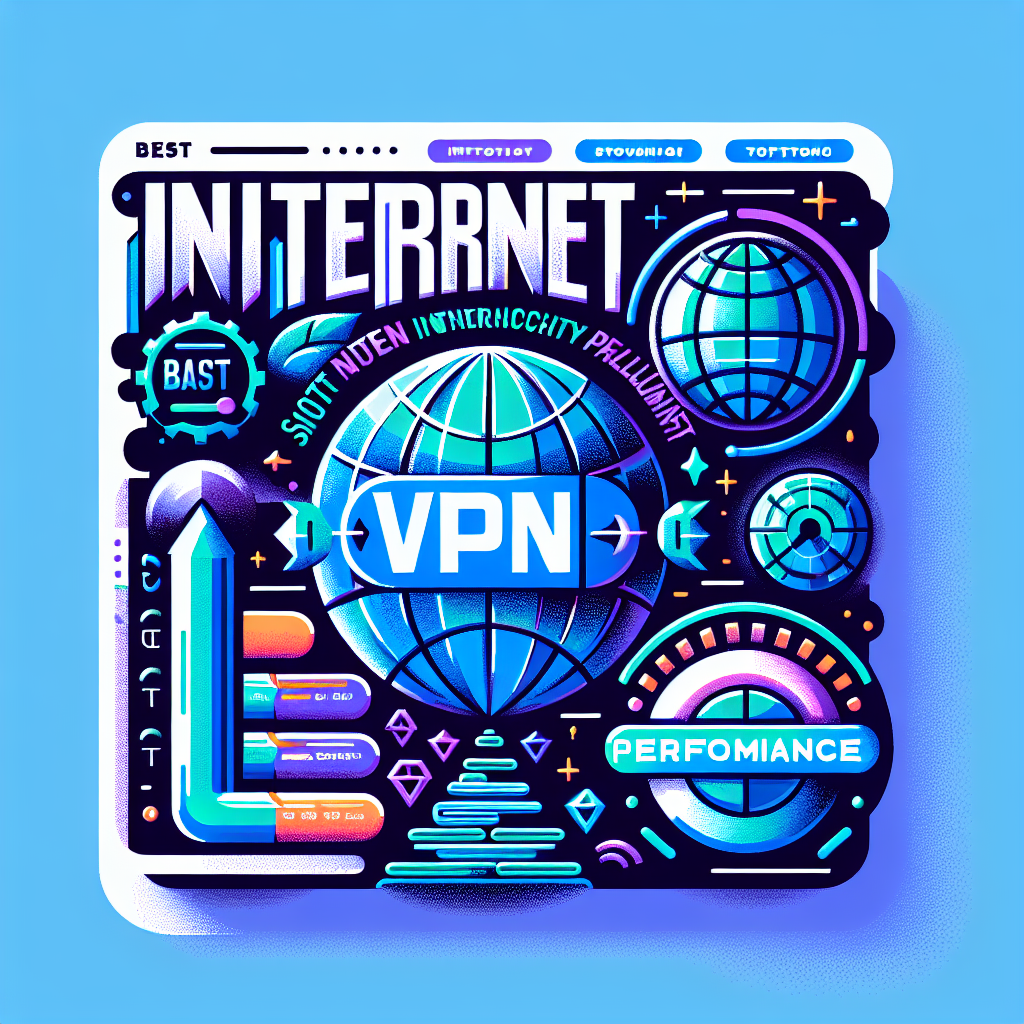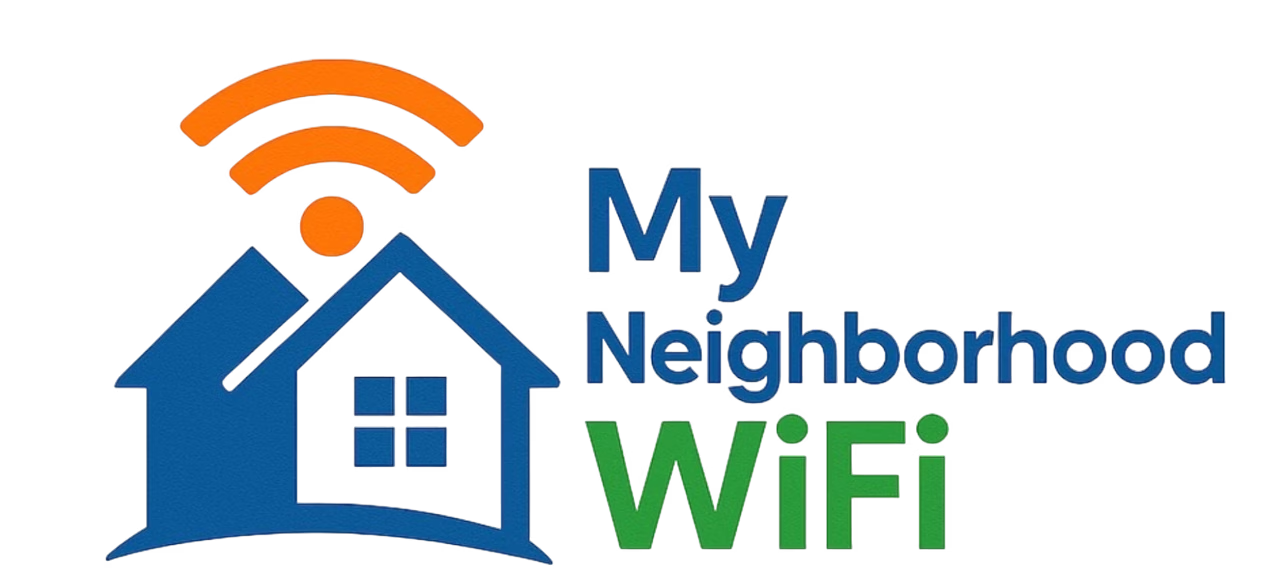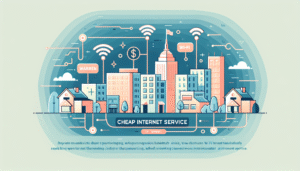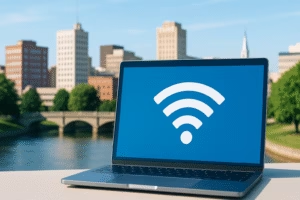
When it comes to using a Virtual Private Network (VPN), choosing the right internet connection can make or break your experience. A fast, reliable network ensures that your VPN runs smoothly without frustrating drops, slow loading times, or buffering. Today, we’ll explore the best internet options for smooth VPN performance, how to set up your network, and what to watch out for when trying to maximize speed and privacy.
Why VPN Performance Depends on Internet Quality
VPNs work by encrypting your data and routing it through a secure server, which naturally adds some overhead. If your connection is already struggling, that extra encryption can slow things down dramatically. That’s why picking an internet option that pairs well with VPN usage is so important.
Here are the factors that influence how smooth your VPN will run:
- Bandwidth: Higher bandwidth reduces slowdowns when streaming, gaming, or video calling.
- Latency (Ping): Low latency is critical for real-time activities like gaming or remote work calls.
- Packet Loss: Dropped data creates stutters and lag in your VPN session.
- Consistency: Stable connections prevent frequent disconnects.
Best Internet Connections for VPN Use
Fiber Internet
Fiber-optic internet is widely regarded as the best choice for VPN users. It offers symmetrical upload and download speeds, ultra-low latency, and reliable performance even during peak hours. Fiber is the gold standard if you want to stream through a VPN in high definition or work remotely with heavy usage of video conferencing.
Cable Internet
Cable internet is a solid alternative in areas where fiber isn’t available. Speeds can be very fast, but they often fluctuate depending on neighborhood usage. For VPN users, a high-tier cable plan usually provides smooth browsing and streaming.
DSL Connections
DSL internet uses phone lines and tends to be slower than fiber or cable. However, if you have a strong DSL connection in your area, it can handle VPN activity for lighter tasks like browsing and email. It may not hold up for 4K streaming while on a VPN, though.
Fixed Wireless Internet
Wireless internet delivered via a tower antenna can be a suitable option in rural areas. Performance depends heavily on the quality of the signal and distance from the tower. Good fixed wireless can support VPNs, but higher latency is common.
Mobile Data (4G/5G)
Mobile hotspots and cellular internet can work with VPNs, especially with newer 5G networks that provide higher speeds and lower latency than older 4G. However, VPNs may quickly consume your data allowance, so be mindful of data caps.
Satellite Internet
Satellite connections have high latency, making them less than ideal for VPNs. While you can browse and use basic services, expect noticeable delays for video calls and gaming. Satellite should only be considered if no alternatives exist.
How to Optimize Your VPN Experience
Choose Nearby Servers
Most VPN services let you pick servers by country or region. The closer your VPN server is to your actual location, the lower your latency is likely to be. For example, connecting from Chicago to a server in New York will generally perform better than connecting to one in Europe.
Use Wired Connections When Possible
While Wi-Fi is convenient, Ethernet cables usually provide faster and more stable connections. If you’re working from home or streaming movies over a VPN, a wired setup is a worthwhile improvement.
Pick VPN Protocols Carefully
Modern VPN protocols like WireGuard or OpenVPN (UDP mode) often provide the best balance between speed and security. Different options perform differently on each network, so it may take a little testing to find the best match for your setup.
Keep Your Router Updated
Old routers can bottleneck your VPN performance. Updating your router’s firmware or upgrading to a more capable model can boost speeds. Some advanced routers even include built-in VPN support, which can help distribute the load.
Comparing Internet Options for VPNs
| Connection Type | VPN Performance | Best For |
|---|---|---|
| Fiber | Excellent | Heavy VPN use, streaming, remote work |
| Cable | Very Good | Everyday browsing, HD streaming |
| DSL | Good | Light browsing, email |
| Fixed Wireless | Fair | VPN use in rural areas |
| Mobile (5G) | Good to Very Good | On-the-go or as a backup |
| Satellite | Poor | Last resort, rural access only |
Common VPN Issues and How to Fix Them
Slow Speeds
Sometimes VPNs may slow down your connection more than expected. Possible fixes include:
- Switching VPN servers to a closer location.
- Changing the protocol to a faster option like WireGuard.
- Restarting your router to refresh your connection.
Frequent Disconnects
VPNs dropping repeatedly is often tied to unstable internet connections. Strengthening your Wi-Fi signal, using Ethernet, or upgrading your plan can reduce interruptions.
Blocked Services
Some streaming services or websites attempt to block VPN traffic. If this happens, try switching servers or checking communities on Reddit where users share updated VPN workarounds.
Tips for VPN-Friendly Home Setups
- Router Placement: Keep your router in a central location to maximize Wi-Fi coverage.
- Limit Devices: Too many devices on your network can eat up available bandwidth—limit background usage when connected to a VPN.
- Upgrade Hardware: Devices with limited processing power may struggle with strong encryption, so newer routers or laptops may perform better.
- Use Community Resources: Check Quora and Reddit communities for real-world VPN tips from experienced users.
Final Thoughts
The best internet option for smooth VPN performance will depend on where you live and how you use the internet. Fiber stands out as the top choice thanks to its speed and consistency, but cable and even 5G can also provide great experiences. By optimizing your network setup and choosing the right connection type, you’ll enjoy a more seamless, secure, and private VPN session every time you go online.
“Most inquiries are answered within the same day”
Written by admin
Content writer and tech enthusiast sharing insights on internet connectivity.



